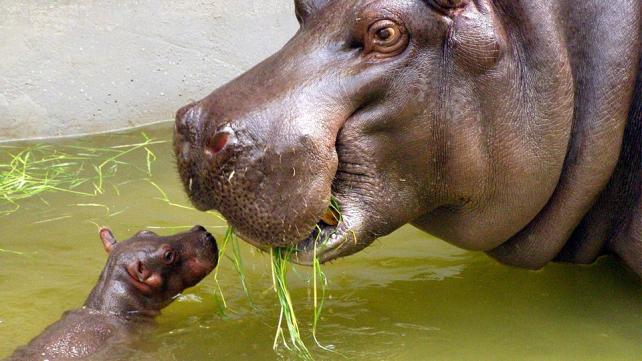
Of all of God's attributes, the one we call upon throughout each day is his Mercy. Waking, eating, praying or beginning a task we invoke the phrase "Bismillah Al Rahman Al Raheem," In the name of God, the Merciful, and Mercygiving. Whether by force of habit or thoughtfully, we remind ourselves again and again of God's mercy.
In the Quran, the mercy of God is His first description, contained in the first chapter. This chapter, the Fatiha—or The Opening—has been memorized by billions of Muslims throughout history. Every day, worshipers all over the world remember God in daily prayers, beginning from dawn into the night. Through the five daily prayers, a Muslim utters words about God's Mercy at least 50 times a day.
We do this because God taught us that way and He asked us to remember Him by repeating it through out the day as we enjoy His blessings. Glory to the Most Merciful, Mercygiving Lord of the Universe.
God says that "He has ordered Himself that He must be Merciful" (Quran 6:12). This is the only attribute of God mentioned in this manner. His Mercy is something that is not abstract. It touches us directly at every breathing moment.
If we were just sitting at work or in class today merely thinking of helping someone, God's Mercy is so great that we will be rewarded for that thought of doing good, even though we may not have actually done anything. But the same is not true if we had a sinful thought or even the intention of wrong-doing. That is only counted against us if we actually commit that wrong. Otherwise it does not matter. Thank you God for tilting scale in our favor. You are indeed Merciful.
And if we do commit that wrong, the doors of God's Mercy are still open to us, He is ready and always willing to accept our remorse and intention of not repeating wrongdoing. His doors of forgiveness are not limited to petty crimes against His creation or little sins; he accepts our repentance of even major sins and capital crimes in God's eyes, like sex outside marriage, murder, and shirk. The Merciful Lord not only wants to forgive us but wants to reward us for repenting. If we repent, reaffirm our faith, do good deeds, even after major sins like that, He says He will transform our sins into good deeds in our favor. (Quran 25:70). While He can decide to punish any of us for our intentional rebellion against His guidance, he says that "My Mercy extends to all things." (Quran 7:156) Therefore, His punishment is an exception to the general rule of Mercy.
God's Mercy touches us through other human beings as well, the most important of whom are our mothers. The Quranic word for Mercy, Rahmah, comes from the root r-h-m which means a mother's womb in Arabic. And it is through these wombs that we taste the sweetness of a person's mercy for another, derived from God's great Mercy. Perhaps this is why the Prophet Muhammad, peace and blessings be upon him said: "God has created His Mercy into a hundred parts of which He has reserved for Himself 99 parts and He sent only one part to this earth which is used by His creation to show mercy to each other." (A portion of the hadith of the Prophet reported by Bukhari). God is indeed Great.
God would be within His Rights to be hard and wrathful towards us. After all, where would we be without Him? Every nanosecond of our existence depends on Him supplying us with the oxygen, water, food and other necessities. Yet, daily, we betray Him, whether it's in the atom of arrogance we harbor towards others in our hearts or by committing countless other misdeeds.
God in His Wisdom, Hikmah, has asked us to be merciful towards other human beings as to qualify for His mercy. The Prophet told us that if you are not merciful towards others, you will not get mercy for yourself. This mercy must extend not just towards other human beings but towards all creation. By practicing it in our daily lives, we prepare ourselves to qualify for His Mercy.
His Mercy remains tilted in our favor. It's a quality we much lesser beings are also rewarded for practicing, whether it's in giving water to a dog dying of thirst, as the Prophet once recounted about a woman who went to Paradise because of this small, merciful act, or ordering a fire put out in an encampment near an anthill so the ants would not suffer (as the Prophet did) or not putting too much weight on an animal we are riding on. Practicing Mercy is another way of relating to God.
We believe in God and follow the Prophet. When God chose the Prophet as a Messenger, He called him a Mercy to the Worlds. Another way of God wanting that Mercy to be continued was when the Prophet completed his mission, and delivered the last Sermon which is filled with messages of inclusiveness and respect for diversity and overcoming racial differences. The mountain where he gave that final sermon is called the Mountain of Mercy, Jabal al Rahma. Every year, millions of Muslims stand on this mountain of Mercy, remembering the Merciful Creator and the man who exemplified this attribute.
Let's continue to invoke His Mercy in prayers and in practice.
Photo Attribution: http://commons.wikimedia.org/wiki/File:Mother_and_very_small_baby_hippo.jpg







Comments
May Allah reward the writer and the people of Sound Vision, Ameen.It's sooo... goooooood to be a muslim.
Location
What uplifting words these are that teach us about Allah's Mercy. Allahu Akbar!
Location
Add new comment